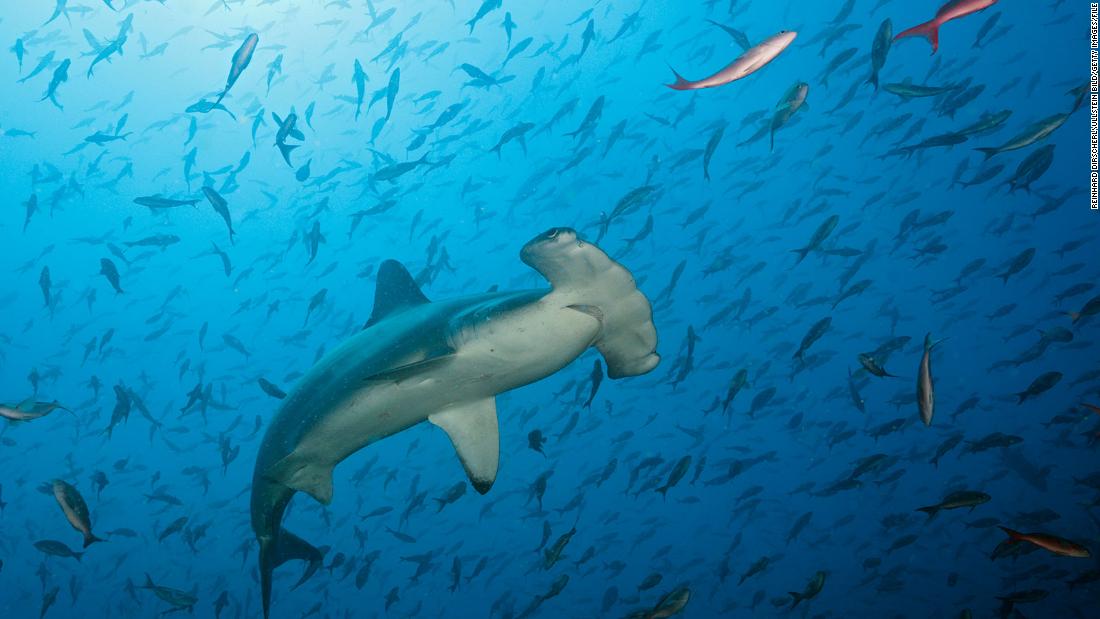- by foxnews
- 27 Nov 2024
Several shark species are facing extinction. Here's how you can help

Older than dinosaurs and trees, sharks have endured a lot throughout their 450 million years on Earth. They've even survived five mass extinctions, including the asteroid that wiped out 75% of life on the planet. But many species of these aquatic apex predators are now in danger of dying out forever.
"Sharks are in crisis globally," says the WWF. Overfishing (hunting for their meat, fins, and other parts before they can reproduce fast enough) is their biggest threat along with unintentionally getting caught in fishing gear and the effects of climate change.
Of the thousand known species of sharks and rays (sharks' closest living relatives), over a third of them are at risk of extinction. And since sharks are "indicators of ocean health," as sharks go, so does the delicate balance of marine ecosystems.
From gathering data to educating the public to advocating for underwater life, many conservation groups are on a mission to protect these prehistoric creatures before they are lost to history. Click here to support their work or keep reading to learn how they're taking action.
Research is key to conservation. Scientists rely on this information to inform wildlife and habitat management and conservation plans while advocates use data to develop and recommend policy to public officials. This research can also be used for public safety purposes as well as to educate future generations that will inherit the planet.
Often conducted in remote and dangerous environments, shark research requires time and money. But that work is paying off as researchers continually identify new species of sharks, such as those that can walk on the ocean floor and glow in the dark.
These research-oriented organizations are exploring the world's reefs, seas, coastlines, and oceans to ultimately benefit shark conservation:
Unfortunately for sharks, NOAA says, "What makes them unique also makes them vulnerable." Some species of sharks, like great whites, are slow to reproduce: they can take decades to reach breeding age, have pregnancies last up to three years, and produce small litters. And warming waters are shifting some of their migration patterns beyond protected areas, putting them at risk of fishing.
All of it is hurting their numbers. A 2021 report showed over the last 50 years, global shark and ray populations have fallen more than 70%.
"If we don't do anything, it will be too late," says biologist and study co-author Nick Dulvy. "It's much worse than other animal populations we've been looking at," adding the downward trend for sharks is even steeper than those for elephants and rhinos, which are "iconic in driving conservation efforts on land."
While the study found we may approach a "point of no return," there are encouraging signs that conservation efforts are starting to work for white sharks and hammerheads thanks to government bans, policies, and quotas.
There is still a long way to go, however, so many conservation organizations like these are dedicated to rescuing and protecting these vulnerable creatures:
It's not just sharks that are vulnerable to deteriorating conditions in the water - the entire marine ecosystem is at risk due to unsustainable fishing practices, climate change, and pollution, which has reached "unprecedented" levels within the last 20 years.
The Great Pacific Garbage Patch, the largest concentration of ocean plastic in the world, is now twice the size of Texas. Scientists are seeing the highest ocean surface temperatures on record this year along with a "totally unprecedented" marine heat wave in the north Atlantic Ocean. Researchers warn all coral reefs on Earth could die out by the end of the century.
Experts say it's not too late to reverse course, but the window to do so is shrinking. A report in the journal Nature found marine wildlife to be "remarkably resilient" and could recover by 2050 with urgent and widespread conservation interventions.
Organizations like the ones below are committed to protecting the health of the entire ocean and all life within it:
Click here to support these organization's work and help save sharks before it's too late.
- by foxnews
- descember 09, 2016
Flight passenger ignites debate after posting photo of traveler's coat thrown over seat
A traveler who said he was flying on Delta posted a photo on Reddit showing that a passenger had their jacket draped over a seat, sparking a discussion in the comments section.
read more


